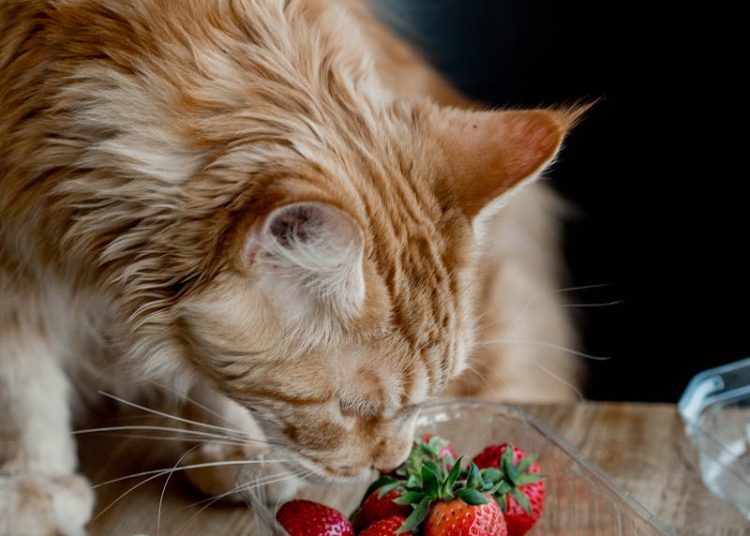Ensuring your pet receives all the necessary nutrients is vital for their health and well-being. Just like humans, pets need a balanced diet composed of specific nutrients that help them grow, stay active, and maintain a high quality of life. Knowing what these nutrients are and how they contribute to your pet’s health can make a world of difference. In this guide, we will explore the essential nutrients every pet needs, why they are important, and how you can ensure your pet gets them in the right amounts.
1. Proteins: The Building Blocks of Growth
Proteins are one of the most fundamental components of a pet’s diet. They provide the amino acids necessary for building and repairing tissues, supporting the immune system, and facilitating numerous enzymatic activities. For dogs and cats, proteins are crucial in developing strong muscles and maintaining overall health.
Sources of Protein: Meat, fish, eggs, and legumes are excellent sources of high-quality protein. While dogs are omnivores and can thrive on both animal and plant-based proteins, cats are obligate carnivores and require animal protein to obtain essential amino acids like taurine.
Importance: A lack of protein can lead to poor growth, a weakened immune system, and even muscle wasting. Puppies, kittens, pregnant pets, and those recovering from illness particularly need higher levels of protein to support their rapid growth and increased metabolic needs.
2. Fats: Essential for Energy and Skin Health
Fats provide a concentrated source of energy and are critical for the absorption of fat-soluble vitamins such as A, D, E, and K. They also play a vital role in maintaining healthy skin and coat, as well as supporting brain function and reproductive health.
Sources of Fat: Omega-3 and omega-6 fatty acids are commonly found in fish oils, flaxseed, and animal fats. Omega-3 fatty acids help reduce inflammation and support cardiovascular health, while omega-6 fatty acids contribute to healthy skin and a shiny coat.
Importance: Pets that do not receive adequate fats may suffer from dry, flaky skin, a dull coat, and decreased energy levels. Ensuring your pet gets the right balance of fats is essential for optimal health, particularly for active pets or those in colder environments who need more energy to stay warm.
3. Carbohydrates: A Source of Energy
Carbohydrates provide energy that helps pets stay active and playful. While not all pets have a high requirement for carbohydrates, they are still beneficial for many, especially dogs, which can effectively metabolize them as a source of fuel.
Sources of Carbohydrates: Whole grains like rice, oats, barley, and vegetables such as sweet potatoes and peas are common carbohydrate sources. Carbohydrates also provide fiber, which helps regulate digestion.
Importance: Carbohydrates are particularly beneficial for highly active pets. They help maintain energy levels throughout the day and contribute to a healthy digestive system. Dietary fiber, a type of carbohydrate, aids in promoting gut health by supporting regular bowel movements.
4. Vitamins: The Micronutrients That Matter
Vitamins are essential for countless biochemical reactions that keep your pet’s body functioning smoothly. They are divided into fat-soluble and water-soluble categories, with each vitamin serving a different purpose.
- Vitamin A: Crucial for vision, skin health, and immune function. Found in liver, fish oils, and eggs.
- Vitamin D: Aids in calcium absorption and bone health. Sourced from egg yolks and fish.
- Vitamin E: Acts as an antioxidant and helps maintain cell integrity. Present in leafy greens and vegetable oils.
- B-complex Vitamins: Support metabolic processes and nervous system function. Found in meat, dairy, and legumes.
Importance: A deficiency in vitamins can lead to numerous health issues, such as poor coat quality, impaired vision, and a weakened immune system. Ensuring that your pet gets adequate vitamins is key to supporting overall well-being.
5. Minerals: The Structural and Functional Helpers
Minerals are essential for a variety of physiological functions, including bone formation, nerve conduction, and muscle contractions. They are generally divided into macro-minerals and trace minerals.
- Calcium and Phosphorus: Both are essential for bone and tooth health. Proper balance is particularly important for growing puppies and kittens to avoid developmental issues.
- Magnesium, Sodium, and Potassium: Crucial for muscle function, fluid balance, and nerve health.
- Iron, Zinc, and Copper: Needed for oxygen transport, immune support, and skin health.
Importance: An imbalance of minerals can lead to health complications like bone deformities, muscle weakness, and anemia. Providing a balanced diet helps ensure your pet gets all the minerals they need in the right proportions.
6. Water: The Most Vital Nutrient
Water is arguably the most important nutrient, yet it can often be overlooked. It is essential for nearly every bodily function, from digestion and temperature regulation to nutrient transport and waste elimination.
Importance: Dehydration can have severe consequences, including lethargy, kidney problems, and even death. Always ensure your pet has access to fresh, clean water at all times to maintain optimal hydration and health.
7. Fiber: Supporting Digestive Health
Fiber is an important part of a pet’s diet, particularly for dogs. It helps maintain digestive health by regulating bowel movements and preventing constipation or diarrhea. Fiber can also help pets feel fuller for longer, which can aid in weight management.
Sources of Fiber: Vegetables, fruits, and whole grains are good sources of fiber. Pumpkin is often recommended as a natural remedy for digestive issues due to its high fiber content.
Importance: A diet with sufficient fiber can help manage conditions like obesity and promote a healthy digestive tract. However, excessive fiber can lead to gastrointestinal issues, so it should be given in moderation.
8. Antioxidants: Boosting Immune Health
Antioxidants play a crucial role in neutralizing harmful free radicals that can cause cellular damage. They support the immune system, reduce inflammation, and help maintain cognitive health, especially in aging pets.
Sources of Antioxidants: Blueberries, cranberries, carrots, and leafy greens are rich in antioxidants like Vitamin C and E. Many high-quality pet foods include antioxidant-rich ingredients to enhance immune support.
Importance: Antioxidants are especially important for older pets to help prevent age-related conditions, improve mobility, and maintain brain function. Including antioxidant-rich foods in your pet’s diet can support longevity and quality of life.
9. Taurine: A Critical Amino Acid for Cats
Taurine is an essential amino acid specifically crucial for cats. It supports heart health, vision, and reproductive function. Unlike dogs, cats cannot produce sufficient taurine on their own, making it necessary for them to receive taurine from their diet.
Sources of Taurine: Taurine is found in animal-based proteins, such as meat, fish, and eggs. Commercial cat foods are typically supplemented with taurine to meet this critical dietary requirement.
Importance: Taurine deficiency in cats can lead to serious health issues, including heart disease (dilated cardiomyopathy), vision problems, and developmental issues. Ensuring that your cat’s diet includes enough taurine is essential for their health and longevity.
10. Omega Fatty Acids: Supporting Skin, Coat, and Joint Health
Omega-3 and omega-6 fatty acids are important for maintaining a healthy coat, reducing skin inflammation, and supporting joint health. They also have anti-inflammatory properties, which are particularly beneficial for pets with allergies or arthritis.
Sources of Omega Fatty Acids: Fish oils (such as salmon oil), flaxseed, and certain algae are rich in omega-3 fatty acids. Omega-6 fatty acids are found in poultry fat, safflower oil, and sunflower oil.
Importance: Pets with deficiencies in omega fatty acids may experience dry, itchy skin, a dull coat, and increased inflammation. Including these healthy fats in your pet’s diet can improve their overall skin and coat quality and reduce joint discomfort, particularly in senior pets.
How to Ensure Your Pet Gets All These Nutrients
The easiest way to ensure your pet receives all these essential nutrients is by feeding them a high-quality, well-balanced commercial pet food formulated to meet their specific needs. Reputable pet food brands design their formulas to provide complete nutrition, often including necessary supplements to cover any gaps.
If you choose to prepare homemade meals for your pet, it is crucial to work with a veterinarian or a pet nutritionist to ensure that the diet is balanced and meets all of your pet’s nutritional requirements. Supplements may be needed to avoid deficiencies and ensure long-term health.
Always keep in mind that different pets have different needs depending on their age, breed, activity level, and health status. Puppies, kittens, pregnant or lactating pets, and senior pets may have special dietary requirements that should be considered when choosing a diet.
Providing your pet with a balanced and nutrient-rich diet will help them live a longer, healthier, and happier life. As a pet parent, understanding what goes into your pet’s food and how each nutrient contributes to their well-being is an essential part of providing the best possible care.








